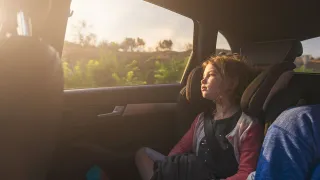Are you familiar with Stendhal’s syndrome?
Are you familiar with Stendhal’s syndrome? It is a feeling of profound emotion that an individual experiences when exposed to objects or phenomena of great beauty. I sometimes think that I get that, but from science.
I have recently become hooked on documentaries about the Moon and realised what an immense and unequalled feat the Moon landing really was 50 years ago! The computer on board the Apollo 11 was less powerful than the smartphones that we have today. It was the most difficult technological challenge ever undertaken by humankind. It took an unbelievable amount of research, cooperation, selflessness, selfishness, technological innovation, risk-taking, dedication and motivated people.
Apollo 11 was launched into the Earth’s orbit by a Saturn V rocket from Cape Canaveral on 16 July 1969. When the countdown began, Neil Armstrong, Edwin “Buzz” Aldrin and Michael Collins were sitting on top of immense amount of energy. Collins later said that he had thought that their chances of success were around 30% and that there was a 70% chance that they would be incinerated on the launch pad. Apollo 11 was preceded by an entire spaceflight programme − Project Gemini − and several manned Apollo missions. Some had succeeded, others had ended in tragedy. This time around, the men were successfully launched into space while hundreds of millions of people around the world huddled around radio and television sets in nervous anticipation.
Once in orbit, the rocket’s third stage propelled Apollo 11 towards the Moon and the lunar orbit. The command and service module then detached from Apollo, turned the spacecraft around and docked with the lunar module. Just imagine the calculations and engineering skills that it took! And the years of persistent, patient preparation and multiple manned spaceflights to practise almost all of these steps.
A few hours before landing on the Moon, the lunar module separated from the command and service module that had been carrying it. As Armstrong and Aldrin continued their descent to the Moon’s surface, Collins carried on alone in the command module to the dark side of the Moon. Collins reported that the moments that he spent in complete darkness on the far side of the Moon, where he could see neither the sun nor the Earth but only dark, infinite space, were the loneliest of his life. And there was no way to know whether they would be his last.
Armstrong and Aldrin began their lunar descent with the help of an automated control system. However, the system took the craft in the wrong direction and Armstrong had to take manual control of the lunar module and steer the module himself. Landing was not an easy task, as there was practically no gravity. NASA’s communications officer at the time said in an interview that he now knows what fear smells like. Because it was fear that pervaded the air inside NASA’s Mission Control Centre as Armstrong and Aldrin attempted to land on the Moon’s surface.
While Collins was spending the most solitary moments in the universe on the far side of the Moon and being one of the few who did not see the moonwalk live on television, Armstrong became the first man to step onto the surface of the Moon and delivered the famous words: “That’s one small step for man, one giant leap for mankind”. NASA had chosen Armstrong as the commander of the lunar mission. It was up to the commander to decide who would be the first man to walk on the Moon. That man would become the most famous person in the world and go down in history for all eternity. Armstrong chose himself.
I have always been fascinated by stories about achieving the impossible. Man did not fly to the Moon because it was easy but because it was hard. Doing easy things is not as motivating as doing difficult ones. When you are facing a difficult situation, just think about the moment when you succeed! About all the trouble that you have taken and been through and the eventual sense of achievement. That feeling is hard to beat.
Sometimes it feels like we are facing the impossible right now. The climate is changing, growing warmer, gradually making the Earth uninhabitable. We are exhausting our natural resources, eating our way to obesity and stressing ourselves to death. Trolls are spreading fake news and making us turn against each other. There are mass shootings, pollution, human and animal suffering. But there is also love, moments when we stop in the middle of a busy day to help a homeless person up off the ground, stroke our child’s hair and kiss their forehead to wish them goodnight. We squeeze our sister’s hand when she has learnt about her father-in-law’s passing, briefly look up from our phone on the bus to meet the eyes of a stranger and smile. We step barefooted onto wet grass after rain, take our hats off to young people who assemble on the streets to demand action from the decision-makers, feel the wind caress our face in autumn storms, take a deep breath and feel alive.
I spent a long time trying to identify the feeling that pervades the corridors of VTT and why. It is not fear but optimism. The fact that we are living in difficult times and facing the greatest global challenges is nothing new to us. We have been here to build a post-war Finland, innovated new, sustainable forms of energy during the oil crisis, modernised the industrial sector, played a part in the creation of the world’s first mobile phone and the first wireless networks in Europe. My colleagues are growing microbes that eat plastic waste in the sea, developing a leather substitute from mushroom mycelium, and extracting antimicrobial compounds from berries to fight antibiotic-resistant superbugs. Our hyperspectral camera is studying the environment from space and attempting to use the information to combat the effects of climate change.
This is why, even now, we are calm, and some of us are actually very excited. We have the competence, scientific knowledge and the experience. What could be more motivating than doing something that is difficult? And why not – this is the best time, as now better than ever can we make the impossible possible. And find answers to the most burning questions of our time. I am sure that you already know that we have the means. All we need now is the same kind of shared passion and will that took man to the Moon.
Take a look of our story: What an amazing time to be alive - https://www.youtube.com/watch?v=XWQINhg1OFk



